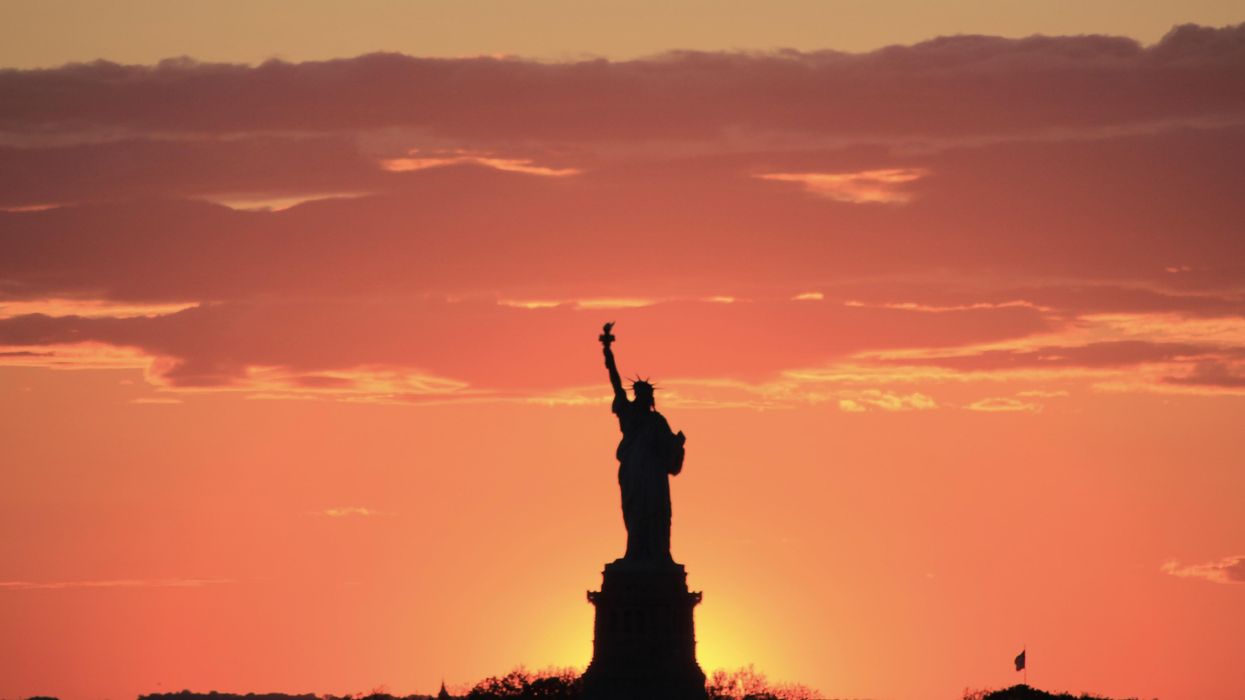Kevin Frazier is a student at the Harvard Kennedy School and the University of California, Berkeley School of Law. Ravel, a former chair of the Federal Election Commission, is a member of the International Comitê Scientifico working on solutions to strengthen electoral justice.
Countries from around the world are rightfully skeptical of learning anything other than what not to do when they come to the United States for the first gathering of the Summit for Democracy this week. When it comes to identifying strategies to make democracies more resilient and inclusive, U.S. officials should take the role of learner rather than lecturer, of attendee rather than host.
By hosting this summit, President Biden must think it’s appropriate for our flawed and floundering democracy to assume the leadership role on the issues facing our democracies. Yet, our nation’s democracy is “ backsliding,” according to the International Institute for Democracy and Electoral Assistance. That slide did not stop when Donald Trump left the White House, despite it being a priority for the current administration to restore our democracy.
“Since day one,” according to the State Department, “the Biden-Harris Administration has made clear that revitalizing democracy in the United States and around the world is essential to delivering for the American people and meeting the unprecedented challenges of our time.” To truly revitalize America’s democracy, the Biden Administration should be studying best practices abroad and giving the stage to the nations that are actively implementing those practices.
Attendees to the summit must doubt they’ll learn much given America’s diminished democratic standing. The skepticism that each attendee brings along will determine the value of the gatherings: the first, this December; the second, a year later. After the Capitol attack on Jan. 6, the world’s perception of America’s democracy forever changed. Nothing in the ensuing months has assuaged worldwide worries that America’s democratic health is waning.
It’s wrong to think that American democracy is just going through a head cold. When a country’s elections have rules that prioritize partisan and special interests, when U.S. electoral participation trails behind other countries year after year, and when millions question the legitimacy and authority of their government, more is required than rest and fluids. Democratic nations around the world have rightfully diagnosed that this country needs substantial rehabilitation to ever get close to realizing its democratic aspirations.
By attending, rather than hosting, the proposed summit, U.S. officials will be in a far better place to learn new strategies to remedy our democratic backsliding. Innovative democratic reforms are in place around the world. U.S. officials should see these reforms on the ground to understand how they could translate to a U.S. context. Even going across the southern border and spending time in Mexico would reveal lessons in democratic resilience and improvement.
While the U.S. struggles to make its electorate representative, Mexican officials have gone a step further: ensuring that their legislative bodies, executive branch and courts include the full spectrum and diversity of Mexican society. Thanks to a democratic culture and electoral bodies that insist on assuring “ gender parity in everything,” rather than hoping for diversity, Mexico’s lower house of Congress now includes 250 female officials amid a 500-person body. The U.S. should be studying how a country maligned for machismo could take on the substantive constitutional reform that made gender parity possible, and is striving toward parity for Black LGBTQ and indigenous Mexicans.
Some would say that the upcoming summit could impart these lessons on America, despite being hosted by the United States. In theory, they’re right. In practice, acting as the host inhibits our ability to humbly listen and implement the strategies of other nations. We’re setting the agenda. We’re sending out the invites. We’re finalizing the goals. All of these actions mean that U.S. officials will miss out on doing the hard work of critically assessing and then improving our democratic systems.
These improvements cannot be further delayed. With elections in 2022 and 2024 right around the corner, global residents and Americans themselves are increasingly worried that violence, misinformation and hyper-partisanship will continue to define the U.S. democracy. These worries will not disappear as a result of this summit. The resulting photo ops, reports and press releases will do nothing to create the sort of cultural change required to jumpstart our collective democratic imagination. The revival of democratic spirits in Mexico came about because actual change was on the horizon – the possibility of a truly representative Congress. Americans need to see that substantive change rather than more summits are on the administration’s agenda.
It’s debatable if the U.S. was ever a “city on the hill” with respect to running an inclusive, participatory and pragmatic democracy. Whatever light we emanated has been extinguished: shaded by dark money, blocked by partisan powers and citizens who don’t believe the truth, and hindered by unresolved racial injustices. Rather than perpetuate a narrative of our country as a beacon of democratic hope, despite the world shuddering while watching the insurrection, President Biden should cancel the Summit and examine how the rest of the world is remedying their democracies for “the unprecedented challenges of our time.”



















Trump & Hegseth gave Mark Kelly a huge 2028 gift